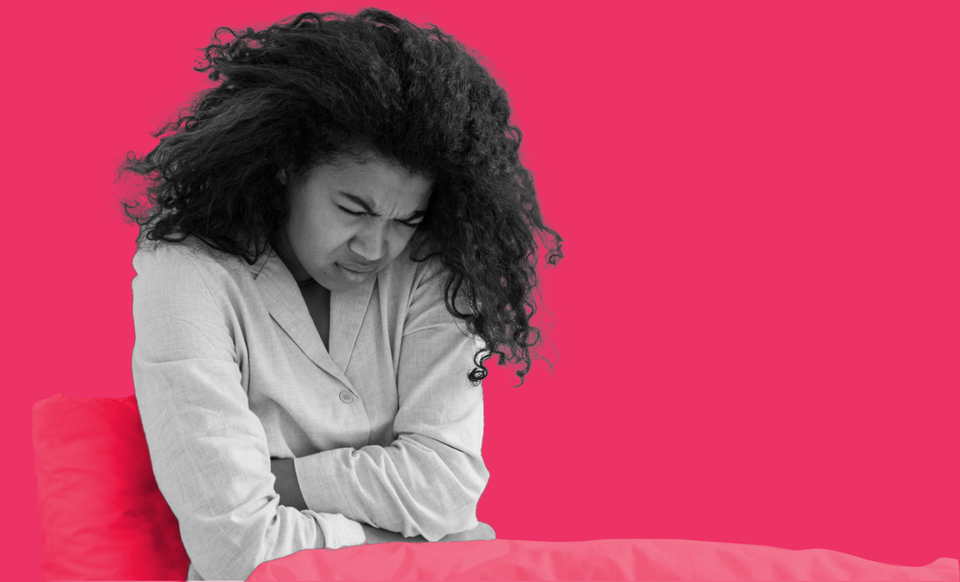
9 PMDD mythbusters
Do you know fact from fiction when it comes to premenstrual dysphoric disorder (PMDD)?
Some mild discomfort and cramping during your period is common. But if your periods are painful and affect your everyday life, you don’t have to put up with it. There are treatments that can help.

Sometimes it can feel embarrassing to talk about periods, but women can have 12-13 periods a year for up to 40 years of their lives. That’s a lot of periods! And period pain is something we should be talking about.
Some mild period cramping and pain in your lower tummy can be expected during your period. It usually lasts between one to three days and is worse in the first 24-36 hours after bleeding starts. You might also experience it a day or two before your period begins. Some months you may have more cramping than others.
But for some of us, the pain is so bad it stops us going to work, to school, or out with friends. If your period pain is so severe it’s affecting your daily life, it’s important to speak to your doctor - there are treatments that can help.
The medical name for period pain is dysmenorrhoea.
Primary dysmenorrhoea is period pain that isn’t linked to an underlying medical condition. This pain is caused by your womb contracting to shed its inner lining during a period. These contractions are triggered by chemicals in your body called prostaglandins. It’s thought that women with higher levels of prostaglandins, or who may be particularly sensitive to them, experience more severe period pain.
The pain usually starts just before your period and can last up to 72 hours. You will likely feel the pain in your lower tummy, but it may also spread to your back and inner thighs. You might experience other symptoms too, such as vomiting, nausea, diarrhoea, fatigue, irritability, dizziness, and headache.
Secondary dysmenorrhoea is caused by an underlying medical condition. This could be:
You may experience your pain and/or symptoms throughout the month and notice it gets worse during your period. You are likely to experience other symptoms such as heavy bleeding, bloating, irregular periods or pain during sex, too.
It’s hard to measure period pain, but pain that stops you living your daily life is not OK.
If your period pain is severe, gets worse, or lasts longer than it usually does, make an appointment with your doctor as soon as possible. If a recent change comes with other issues such as heavy bleeding or bloating, keep a diary to track these symptoms – this can help your doctor make a diagnosis.
Your doctor or GP may refer you to a specialist, normally a gynaecologist, for further tests if they suspect a medical condition may be the underlying cause. You can read more about preparing for your appointment here.
There are many treatments that can help reduce discomfort, cramping and pain during your period.
Treating period pain at home can be helpful while you’re waiting for a medical appointment, or if it’s not severe.
You can try:
You may also find some lifestyle changes helpful, such as:
If you find your period pains continue to affect your life despite trying treatments at home, there are ways your doctor can help. Find advice on how to prepare for your appointment.
Your doctor could prescribe different period pain tablets, including NSAIDs like naproxen or mefenamic acid. As with ibuprofen, experts recommend you start taking them one to two days before your period pain usually starts. You should also take NSAID painkillers consistently for a few days during your period, not just at the times your pain becomes overwhelming.
Your doctor could also prescribe the contraceptive pill or an intrauterine system (IUS) like the Mirena coil. The contraceptive pill and hormonal coil are hormonal treatments that thin the womb lining. This reduces the amount of prostaglandins you produce and that, in turn, can reduce your period pain.
Some GPs and nurses can fit coils for period pains or heavy bleeding but others can only fit coils for contraception. Make sure you say if you’d also benefit from the contraceptive effects because you may be able to have it sooner with a GP or nurse, rather than waiting for a referral to see a gynaecologist.
Remember, if you have period pain that’s affecting your life, there’s no need to put up with it. Treatment can help. If you have any symptoms or concerns, always speak to your doctor.
Our periods information hub is here to help educate and empower. Get more information and support here.

Do you know fact from fiction when it comes to premenstrual dysphoric disorder (PMDD)?

You might be nervous about getting your first period, or you might have had periods for a while but are finding them difficult. You’re not alone.

Don’t worry, we’ve got the lowdown on how to feel supported while sorting fact from fiction.